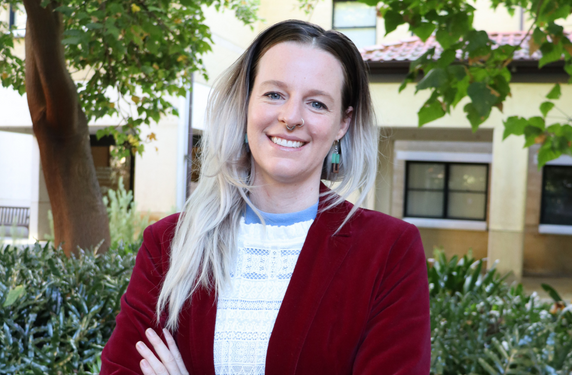Environmental economics is a powerful lens to help us to understand the positive and negative impacts of policy or planning decisions, says The University of Western Australia Natural Resource Management PhD candidate Alaya Spencer-Cotton.
Ms Spencer-Cotton recently submitted her thesis, under the guidance of supervisors UWA Associate Professor Marit Kragt, Professor Michael Burton and Dr Jorge Alvarez-Romero.
For her postgraduate research, she explored the values and preferences that the Australian public had for different rangelands land-uses in the Kimberley region of Western Australia.
“The preferred future of the Kimberley rangelands includes a diversity of land-uses and promotes economic growth that maintains the natural landscape, while supporting the ecological and cultural values of the region,” she said.
Having started out studying environmental and marine science, Ms Spencer-Cotton was working for an environmental non-government organisation when she discovered her true research calling.
“It occurred to me that, in some ways, no amount of scientific understanding about human-environment interactions will necessarily help us make better decisions,” she said.
“I became interested in the interaction itself and the human values part of the interaction, which led me toward economics and economic theory.”
"I have always been interested in understanding how humans interact with the environment around them."
Alaya Spencer-Cotton
Ms Spencer-Cotton said she strongly believed that society could collectively make decisions that create a more sustainable future for everyone.
“Using a variety of lenses and tools to understand all the impacts of decisions can help us make these decisions,” she said.
“These are often derived from different ways of being in and seeing the world.
“Environmental economics is just one lens, and it can be a powerful one, for helping us to understand all the positive and negative impacts of policy or planning decisions.”
While reflecting on her postgraduate journey, Ms Spencer-Cotton said the highlight was meeting so many inspiring and interesting people who work in agricultural and resource economics around the world.
“They are resourceful, passionate people that care about creating a better world for everyone to share,” she said.
